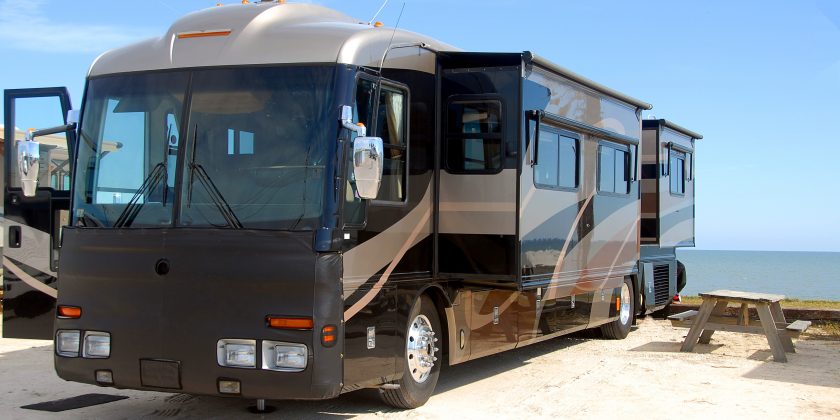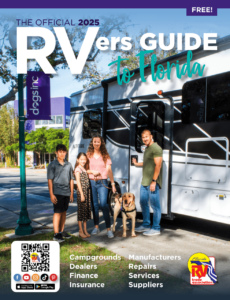Why You Just Might Fall in Love With a Class A RV This Year!
People considering RV shopping sometimes opt to search for an opulent Class “A” motorhome. How do you know whether or not to search for one of these recreational products? Consider some useful RV tips as you evaluate the suitability of these models:
Tip #1: Choose a Class “A” to Reduce Some Vacation Expenses
Class “A” encompasses the longest class of motorized recreational vehicles. These motorhomes typically extend anywhere from 26 feet up to 45 feet in length. Most states restrict the width of these RVs to 8 feet (over the road). Manufacturers sometimes construct a Class A recreational vehicle using a commercial bus chassis or a truck chassis. These vehicles may weigh up to 30,000 pounds. The largest ones include three axles (like some commercial trucks).
Today, some manufacturers offer slideout sections to extend interior living areas inside parked Class A RVs. For instance, certain models permit the expansion of sections of the parked vehicle up to 15 feet across. When you select this class of recreational vehicle, you basically obtain a residence on wheels. Some models offer fully equipped kitchens, furnished living rooms, washers and dryers, and up to two bedrooms.

Class A RVs are big enough to have it all – even a washer and dryer to make laundry day a breeze!
While this class of RV tends to rank among the priciest choices, it offers remarkable flexibility. A Class A motorhome permits owners to enjoy extended vacations without the burden of hotel or realty rental bills if desired. Retirees, entertainers who travel frequently, and full-time RVers often select this class of vehicle. People shopping for a Class A motorhome should expect to pay anywhere from $60,000 for a modest selection up to $500,000 (or more). Conduct RV shopping carefully to discover products matching your criteria.
Tip #2: Check RV Campground Accommodations in Advance
Considerable variation occurs within the Class A models in terms of potential energy use and hookup requirements. Most RV parks and campgrounds gladly share information about space availability with interested prospective customers. Consider calling and making reservations in advance to ensure you obtain the best site for your Class A motorhome (especially if you’ll require more space than most RVers).
Tip #3: Research State DMV Rules
It also proves helpful to consult with the Department of Motor Vehicles about roadway regulations and weight requirements for your RV. Many states don’t expect drivers to obtain additional training to operate a Class A RV, but some do. Remember, some of these vehicles use a chassis suitable for a big rig or a bus. If driving a Class A is intimidating, check out Tia’s Tips which helped her take over the wheel on their adventures.

Multiple slide-outs increase the interior living space of a Class A.
The length and weight of your motorhome usually determine whether you need additional training to drive it. Learn about these regulations, as well as any state-specific vehicle registration fees and insurance provisions for this class of RV. You’ll avoid last-minute surprises by staying well-informed.
Tip #4: Investigate Applicable HOA RV Storage Requirements, Too
Many RVers discover they reside almost full-time in this luxurious class of motorhome. Yet if you do plan on keeping your RV parked in your driveway at least part of the year, make sure you investigate any applicable Homeowners Association covenants in advance. Some HOAs limit or prohibit the parking of RVs in residential neighborhoods, while others do not.
Tip #5: Consider Bringing Along Your Vehicle
The spaciousness of a typical class A RV contributes to the cost of operating the motorhome for brief errands. Frequently, RVers prefer to take along an auto as well during extended vacations to Florida or other holiday destinations. Check with your RV dealership about auto towing options for your RV.
Today, some luxury models even include interior vehicle storage. If you are shopping for an RV in Germany, consider the opulent Class A Volkner Mobile Performance S includes a central “garage” lift to facilitate the storage of an auto beneath the camper section. Adding a built-in garage to your motorhome may offer a great alternative to towing!

